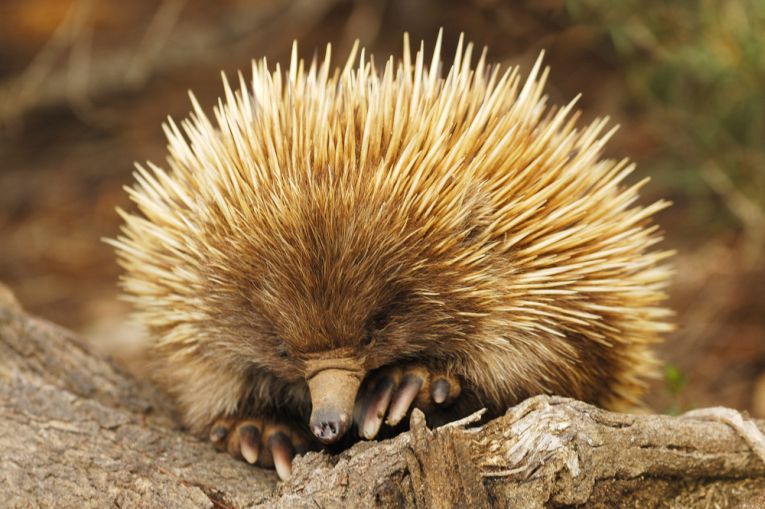Heterothermic mammals use a kind of sleep called torpor to survive hot or cold conditions, or simply food shortage. The possibility of burrowing down and surviving adverse conditions with lowered energy requirements would seem to fit successful survival for many circumstances, especially forest fire. One of the largest deep hibernating/aestivating mammals is the short beaked echidna, Tachyglosssus aculeata, so an investigation sought to examine both activity and body temperature around the time of prescribed burning of forest.
5 echidnas were tagged and the changes in their daily activity and body temperature recorded. Their activity after the fire reduced very significantly, with torpor lasting from 51 hours to 123 hours after the fire, although one individual had only bouts of torpor. Temperature of their bodies decreased and varied a lot after the fire.
The short and medium term response to this big impact on the echidna's long life was increased use of torpor. They also reduced activity immediately and sought out log shelters. Tragically, in several cases within the forest, the logs burnt at high temperature and killed the animals. One tagged animal had inadvisably begun a torpor before the fire. More often though, the marked individuals managed to transfer to another shelter away from such a hazard. After the fire, echidnas used logs less often for shelter!
This species occupies niches in forest and desert throughout Australia and New Guinea. Using this reduced activity reaction immediately after the fire and also for at least 3 weeks afterwards indicates flexibility that is not always possible in other animals. The shortage of food resources (usually ants and termites) may have influenced the individuals studied. The authors, Julia Nowack, Christine Elizabeth Cooper and Fritz Geiser (of the Universities of Curtin, Western Australia and New England) claim in their paper in the Proc. Roy Soc B today that early mammals had some of the echidna characteristics and may have survived the K-Pg vertebrate extinction, more than 65mya in similar ways to the fire resistance techniques used here!
More important for the future, global warming or wildfires seem unlikely to bother at least one species. Animal response could also be a clue to their conservation of course. Lucy Brake gave us, long ago,a neat conservationist travelogue on the Aussie Border Rangers National Park, where echidnas and many others can be observed in the so-called, Green Cauldron.










